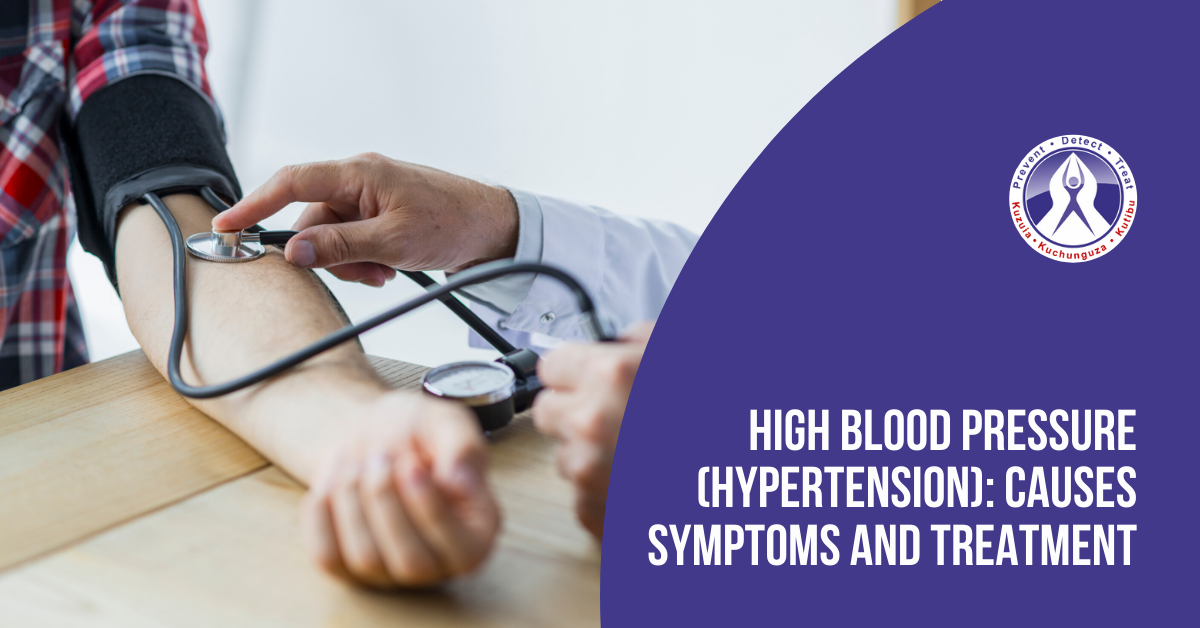High Blood Pressure (Hypertension): Causes, Symptoms and Treatments
1,604 viewsHypertension (High Blood Pressure) can have serious health implications if not treated in time. It can go undetected due to its nature of not producing obvious symptoms. Through regular check-ups, we can always know its presence and tackle the situation at hand. So let’s understand what exactly Hypertension is and what are the causes and symptoms of Hypertension.
What is High Blood Pressure (Hypertension)?
High Blood Pressure (Hypertension) is a condition in which the force of blood against your arteries soars to dangerously high levels causing potential health issues and particularly, heart issues. This is because the amount of blood flow in your body and the resistance it receives has a direct impact on your health especially, your heart.
When your arteries become narrow, the force of blood on your arteries increases causing your blood pressure to increase to levels that demand immediate attention and treatment.
An individual can have High Blood Pressure (Hypertension) and still show no symptoms of the same. This is because High Blood Pressure (Hypertension) develops over a long period. However, this does not mean that the damage so done to the body will go unnoticed.
Through regular check-ups, one can easily take the necessary actions to control such an unfortunate situation.
Understanding blood pressure readings
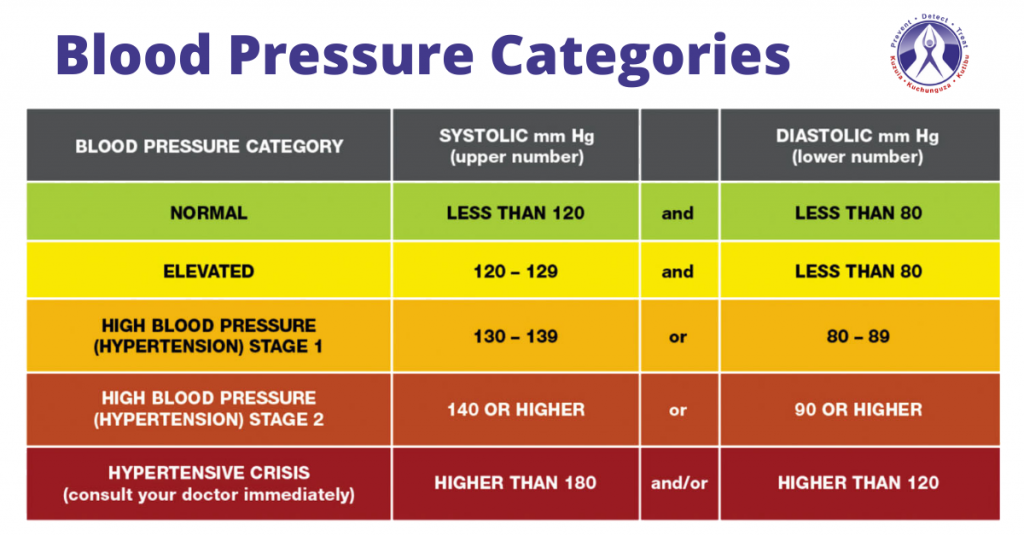
To decipher the readings on the device that measures blood pressure, two kinds of numbers are involved, systolic and diastolic, respectively. The former is the measurement of force in the arteries when the heart is beating and the latter is the rest between those heartbeats.
Ensure that before your blood pressure is measured there has been physical inactivity and you are at ease. Otherwise, the readings will be misleading. For a proper evaluation, it is necessary to take multiple readings at different intervals of time as advised by a doctor.
The range of blood normal pressure is usually below 120/80 mmHg. Also, written as 120 over 80.
Symptoms of Hypertension

A person can go about his routine life without experiencing any symptoms mentioned below and still have Hypertension (High Blood Pressure). They can develop noticeable symptoms in years later. However, those symptoms can be linked to other health issues too.
For instance, High Blood Pressure and fatigue are closely- related but fatigue may be caused due to other things too. Therefore, only a regular check-up can ensure its actual presence.
Severe High Blood Pressure symptoms include:
- Breathing difficulties
- Headache
- Blood in the urine
- Nosebleeds
- Chest pain
- Hazy Vision
- Irregular heartbeats
- Pounding chest, neck or ears
- Fatigue
High Blood Pressure Causes
Often, the causes of High Blood Pressure are varied and depend on the type of Hypertension. Hypertension can be of two types:
Primary Hypertension
For this type of hypertension, often, there lies no identifiable cause. Meaning to say, that Hypertension does not show any links with anything in particular. There can be one or a combination of causes that lead to Hypertension.
It can pass on genetically or attributed to a harmful lifestyle or any physical changes. Primarily, no obvious causes have been identified. However, some of these mentioned above are closely linked.
Secondary Hypertension
This is usually a result of an underlying condition(s). Generally, if the underlying condition is treated, a person’s blood pressure may return to normal levels. Some causes identified with people who have secondary Hypertension are:
- Diseases related to Kidneys
- Obstructive sleep apnea (OSA)
- Diseases related to Heart (Particularly, contingent)
- Adrenal gland tumor
- Problems related to Thyroid
- Some medications such as prescribed drugs, birth control pills
- Illegal drugs such as cocaine amongst others
- Consumption of alcohol
Hypertension Treatment
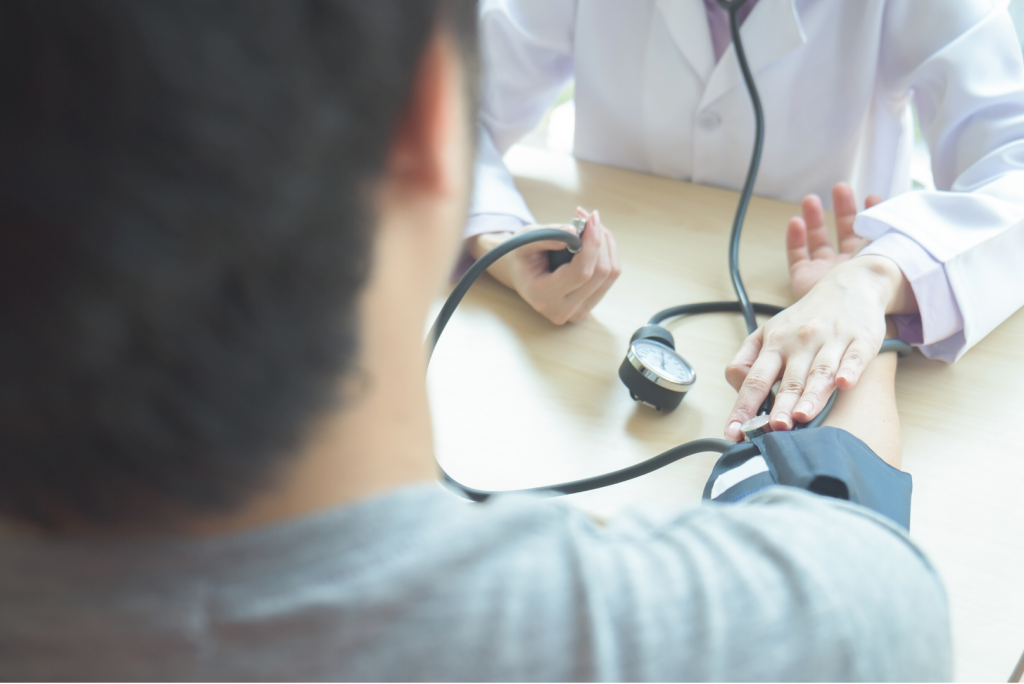
It’s important to treat High Blood Pressure to avoid future major health issues such as strokes, heart attacks, heart failures, and kidney-related diseases.
Treatment for High Blood Pressure
High Blood Pressure treatment is not a one-time or a one-dose thing. It requires constant and concrete lifestyle changes to ensure that one is truly free of Hypertension. Hypertension treatment is different for different types of Hypertension and is as follows:
For primary hypertension
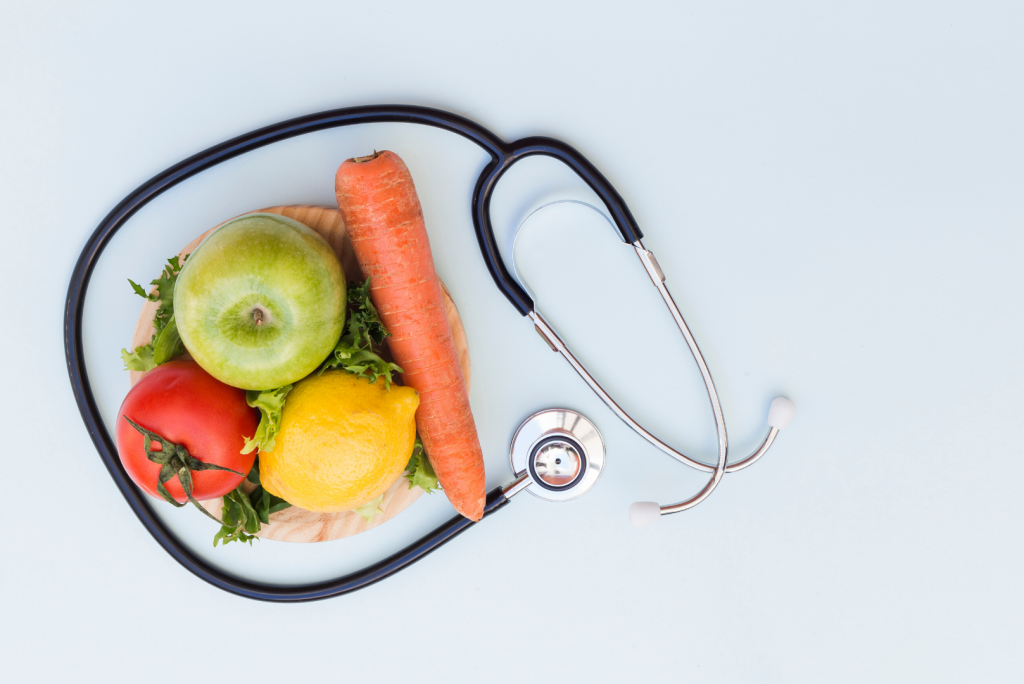
Treating Primary Hypertension requires a person to make a 360-degree lifestyle change. Your doctor may recommend the following measures for the treatment of primary hypertension:
- Make your diet healthier
- Quit Smoking
- Maintaining a healthy weight (Try to reduce your weight, if you are overweight/obese)
- Limiting alcohol consumption
- Physical activities such as brisk walking every day
For secondary hypertension
When treating Secondary Hypertension, our primary goal is to treat the root cause behind it. Normally, when that particular issue is treated, your blood pressure returns to a normal range or at the least lowers.
However, even after treating the root cause, your blood pressure levels do not reduce, then it’s time for a lifestyle change. To avoid heavy medication, one must first change what is in one’s full control. Our lives are in our hands and by making significant changes in it, we can reduce our dependence on medication under. Ofcourse, under the due guidance of a doctor.
Here are a few points for treatment and hypertension prevention that involve some changes in your lifestyle and they are:
Making all your meals healthy
Try to follow a diet that is healthy for your heart and includes fruits, vegetables, and whole grains. If you eat non-vegetarian items, then lean proteins such as fish are ideal. Reduce the intake of sodium in your meals.
Maintaining a healthy weight
If you are overweight or obese then, it might be a good idea to focus on shedding those extra kilos to help you from developing any further issues.
Maintaining physical well-being
It’s important to maintain physical activity every day. It can include brisk walking for at least 30 minutes a day.
Managing mental well-being
You can practice yoga, meditation, deep breathing, or get a massage. This will ensure your stress levels are under control and your mind is relaxing.
Adopting an overall healthier and cleaner lifestyle
This includes trying to gradually get rid of any habits that may prove to be harmful such as drinking or smoking.
Hypertension Risk Factors
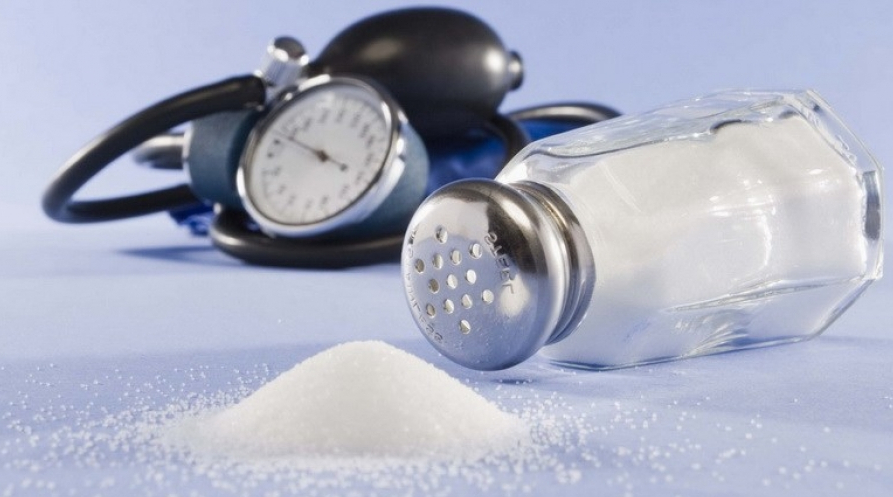
A prerequisite to any treatment has to take care of the following risks throughout the entire process. This is because the effects of the same treatment can have different impacts on different people. And they are:
Age
The older you are, the more prone to High Blood Pressure you become. The importance of regular medical check-ups cannot be understated. So, make sure you go for regular visits to your doctor and get your blood pressure checked.
Weight
This is an important factor to work on if you tend to be overweight or obese as more weight will increase the pressure on your artery walls.
Hereditary
Usually, High Blood Pressure can be passed on through heredity when someone in the family has similar issues.
Having excessive amounts of salt
Having more salt (sodium) is likely to be risky as it will retain the fluid in your body which will cause your blood pressure to increase
Not consuming potassium-rich foods
Potassium is a leveler in the sense, it helps balance the amount of sodium in your body. So, make sure you have more potassium in your diet.
Tobacco/Alcohol/Smoking
All these habits go a long way to harm your body and tend to increase your blood pressure.
Conclusion
Doctor’s recommendations from diagnosis to treatment are necessary and full disclosure of your health – past, and present, is mandatory for proper evaluation of the situation and the subsequent treatment. High Blood Pressure medication should be taken as advised by the doctor. However, there are some changes mentioned above that can be implemented to ensure a healthy body. All these lifestyle changes are home remedies that are good for a person’s body generally too. We urge you to visit your doctor regularly to stay abreast of any complications that might occur.

